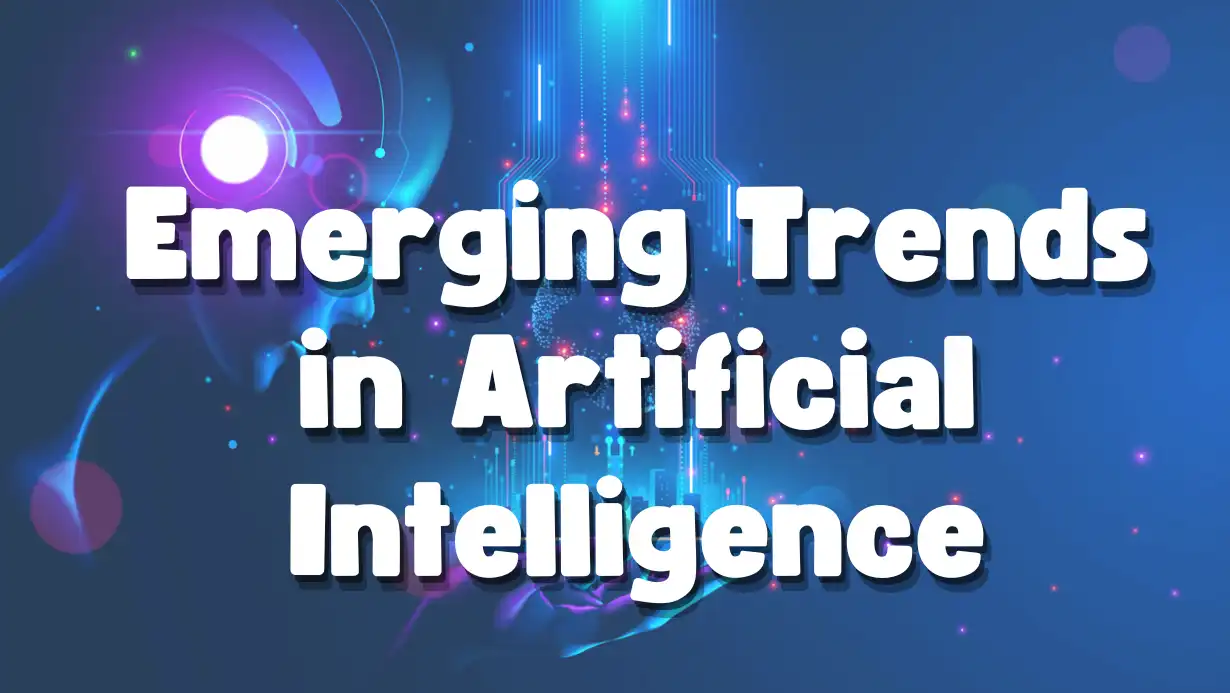Artificial Intelligence (AI) continues to evolve at a rapid pace, driving innovation across various sectors and reshaping how we interact with technology.
As we progress into 2024, several emerging trends in AI are poised to make a significant impact on industries and everyday life. This article explores the key AI trends to watch in 2024 and their potential implications.
Advancements in Generative AI
- AI-Generated Content: Generative AI models, such as GPT-4 and beyond, are becoming increasingly sophisticated at creating text, images, music, and other forms of content. These advancements are being used in creative industries, marketing, and personalized content generation.
- Enhanced Creativity: Generative AI tools are assisting artists, writers, and designers by providing new ideas and automating parts of the creative process, leading to innovative and diverse outputs.
Improved Natural Language Processing (NLP)
- Contextual Understanding: NLP technologies are becoming better at understanding and generating human-like text with improved contextual awareness and coherence. This is enhancing chatbots, virtual assistants, and language translation services.
- Conversational AI: Advances in NLP are driving the development of more intuitive and responsive conversational AI, enabling more natural interactions between humans and machines.
AI in Healthcare and Biotechnology
- Precision Medicine: AI is playing a crucial role in precision medicine by analyzing genetic data and patient records to provide personalized treatment recommendations and identify potential health risks.
- Drug Discovery: AI-powered algorithms are accelerating drug discovery and development by analyzing complex biological data and predicting the efficacy of new compounds.
Edge AI and IoT Integration
- Real-Time Processing: Edge AI involves processing data on local devices rather than relying solely on cloud-based systems. This trend is improving real-time decision-making and reducing latency in applications such as autonomous vehicles and smart sensors.
- IoT Expansion: The integration of AI with the Internet of Things (IoT) is enhancing smart home devices, industrial automation, and connected infrastructure by enabling more intelligent and adaptive systems.
Ethical AI and Responsible AI Practices
- Bias Mitigation: There is a growing focus on addressing and mitigating biases in AI algorithms to ensure fairness and equity in decision-making processes.
- Transparency and Accountability: Efforts are increasing to make AI systems more transparent and accountable, with a focus on clear documentation and explainability of AI decisions.
AI-Powered Automation and Robotics
- Enhanced Automation: AI-driven automation is expanding across various industries, including manufacturing, logistics, and customer service. This trend is leading to more efficient operations and the creation of new business models.
- Advanced Robotics: AI is advancing the capabilities of robots, enabling them to perform complex tasks in dynamic environments, from warehouse automation to healthcare assistance.
AI for Environmental Sustainability
- Climate Modeling: AI is being used to improve climate modeling and predict environmental changes, aiding in the development of strategies for climate mitigation and adaptation.
- Resource Management: AI-driven solutions are optimizing resource management in areas such as agriculture, energy consumption, and waste management, contributing to more sustainable practices.
AI in Finance and Fraud Detection
- Algorithmic Trading: AI algorithms are enhancing trading strategies and financial forecasting by analyzing large volumes of data and identifying market trends.
- Fraud Prevention: AI is improving fraud detection and prevention in the financial sector by analyzing transaction patterns and detecting anomalies.
AI-Driven Personalization
- Customer Experience: AI is enhancing personalization in marketing and customer service by analyzing user preferences and behavior to deliver tailored recommendations and experiences.
- Adaptive Learning: In education, AI-driven adaptive learning platforms are providing personalized learning experiences based on individual student needs and progress.
Collaborative AI and Human-AI Interaction
- Augmented Intelligence: Collaborative AI is focused on augmenting human capabilities rather than replacing them, leading to more effective human-AI collaboration in various fields.
- Enhanced Interaction: Efforts are being made to improve human-AI interaction by developing systems that understand and respond to human emotions, gestures, and intent.
Conclusion
The landscape of Artificial Intelligence is rapidly evolving, with significant advancements and emerging trends shaping the future of technology.
From generative AI and improved NLP to AI-driven healthcare innovations and ethical considerations, the developments in AI for 2024 promise to drive transformative changes across industries. Staying informed about these trends and their potential implications will be key to leveraging AI effectively and responsibly in the years to come.
